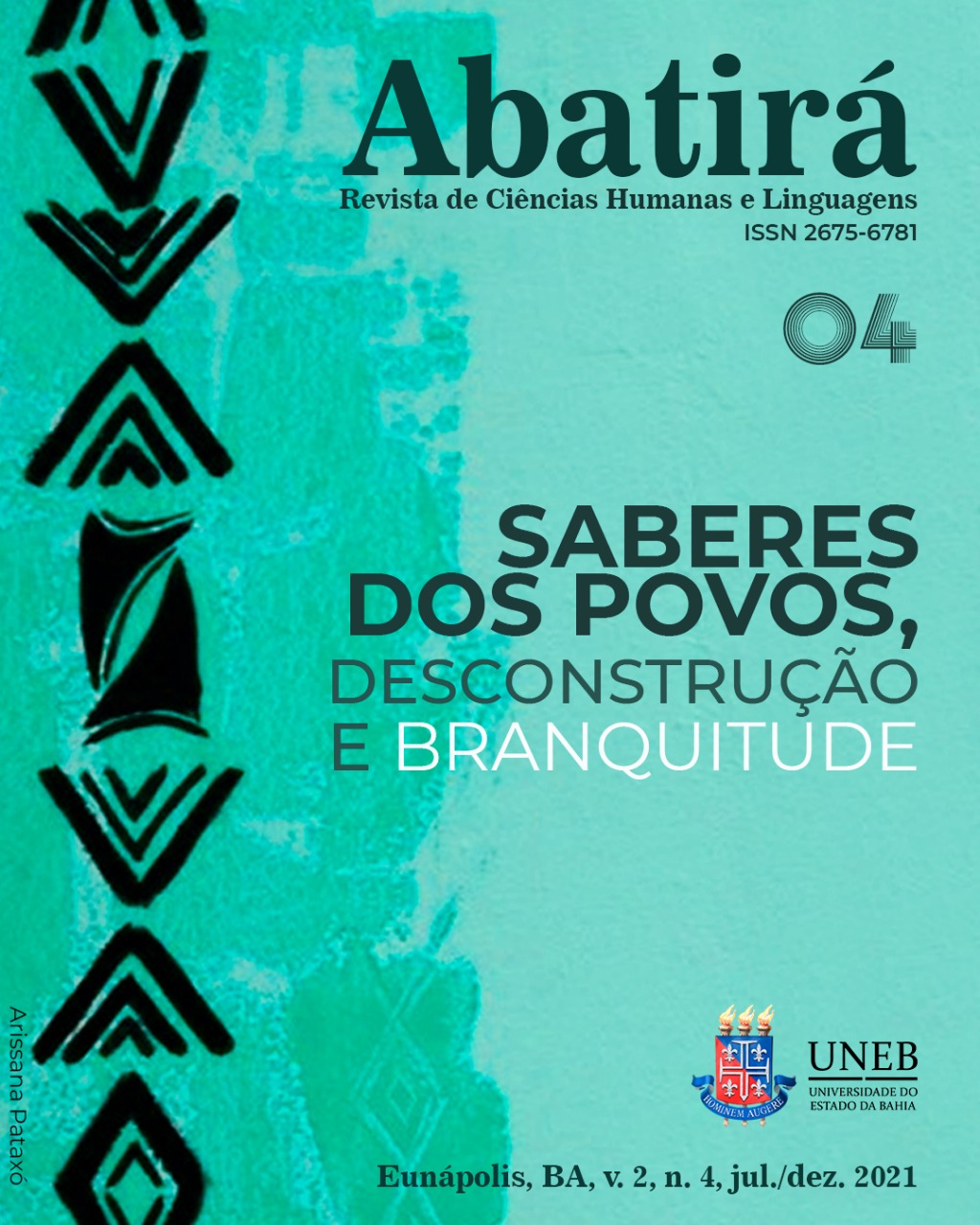Corre-Gira Pombagira
Marias knowledge policy in Being a Woman
Keywords:
Pombagira; Woman; Decoloniality; Corporeality.Abstract
The aim of this text is to bring Pombagira to think about women's issues. We listen to this sign to transit through subaltern knowledge and invoke it to think about issues of women's struggle. The pombagira emerges to tie on Being a Woman in the daily life of gender inequality, through the free and transgressive character that it brings with it. Proposing an approach based on the dialogue of knowledge, using the concept of cross as a theoretical-methodological operation, crossing theoretical paths, experiences and ways of feeling/doing/thinking gestated outside the dominant modes, we will seek to question the hetero/patriarchal/white structure and its articulation with the Judeo-Christian modus in the obsession with adjusting individuals to moralizing practices that marked women and the feminine as a symbol of evil. We will include in this plot the subjectivities that involve bodily knowledge in countless possibilities, making its reading from its integrality beyond materiality. Joining these approaches the reading of decolonial studies on feminism, in a reflection that considers the dimension of concrete reality and thinks beyond the ready concepts, traversing paths of a feminism that has no name. In our search for analysis and questioning, we intend to sew new questions on the hem of the Sete Saias de Pombagira and advance in the responses to gender inequality and violence.
Downloads
References
BUARQUE DE HOLANDA, Heloísa, (org). Pensamento feminista hoje- perspectivas decoloniais. Rio de Janeiro: Bazar do Tempo, 2020.
BUTLER, Judith. Corpos que importam. São Paulo: Crocodilo Edições, 2019.
CASTRO, Mary Garcia. Introdução, in Heloísa Buarque de Hollanda. Pensamento Feminista hoje-perspectivas decoloniais. Rio de Janeiro: Bazar do Tempo, 2020.
GONZALES, Lélia. A categoria político cultural de amefricanidade, in: Revista tempo brasileiro, no92/93, jan/jun. Rio de janeiro, 1988, p.76
GONZALES, Lélia. (2020) Por um Feminismo Afro-latino-americano. RIOS, Flavia; LIMA, Márcia (ORGs). ZAHAR, Rio de Janeiro.
KRAMER, Heinrich; SPRENGER, James. O martelo das feiticeiras. 29 ed. – Rio de Janeiro: Rosa dos Tempos, 2020.
LUGONES, María. Colonialidade e Gênero, in Heloísa Buarque de Hollanda. Pensamento Feminista hoje – perspectivas decoloniais. Rio de Janeiro: Bazar do tempo, 2020.
OYEWUMI, Oyerónké. A invenção das mulheres: construindo um sentido africano para os discursos ocidentais de gênero. Rio de Janeiro: Bazar do Tempo, 2021.
RUFINO, Luiz. Pedagogia das Encruzilhadas. – Rio de Janeiro: Mórula, 2019
RUFINO, Luiz; SIMAS, Luiz Antônio. A ciência encantada das macumbas. Rio de Janeiro: Mórula, 2018.
SANTOS, Antonio Bispo. Colonização, Quilombos: modos e significados. Brasília: UNB, 2015.
Downloads
Published
How to Cite
Issue
Section
License

Este trabalho está licenciado sob uma licença Creative Commons Attribution 4.0 International License.Você é livre para:
Compartilhar - copia e redistribui o material em qualquer meio ou formato; Adapte - remixe, transforme e construa a partir do material para qualquer propósito, mesmo comercialmente. Esta licença é aceitável para Obras Culturais Livres. O licenciante não pode revogar essas liberdades, desde que você siga os termos da licença.
Sob os seguintes termos:
Atribuição - você deve dar o crédito apropriado, fornecer um link para a licença e indicar se alguma alteração foi feita. Você pode fazer isso de qualquer maneira razoável, mas não de uma forma que sugira que você ou seu uso seja aprovado pelo licenciante.
Não há restrições adicionais - Você não pode aplicar termos legais ou medidas tecnológicas que restrinjam legalmente outros para fazer qualquer uso permitido pela licença.





